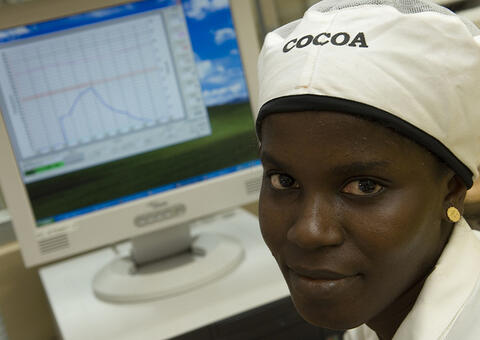Blog
How to Empower Women Entrepreneurs Through Access to Credit - Collateral Registries Can Help!

Among the major constraints to SME growth worldwide, lack of finance is considered to be one of the greatest hurdles. On average, 30% of SME owners in Sub-Saharan Africa see their credit application rejected by formal financial institutions due to lack of “suitable collateral” (real estate collateral or cash), and another 25% do not even bother to request a loan under the assumption that the request will be rejected due to lack of appropriate collateral. These constraints can be even more severe if the owner of the SME is a woman.
When seeking financing, lack of collateral is among the most widely cited obstacle encountered by SMEs and the primary among women. According to the World Bank’s Enterprise Surveys, 78% of the of the assets of the average SME will be composed of movables property (inventory or stocks, equipment and accounts receivable) and only 22% of real estate assets. Women are particularly disadvantaged due to the fact that they own less real estate property than men. Globally, financial institutions’ portfolio of loans with women owned SMEs tend to be significantly lower than the share of women owned SMEs in their target markets would suggest, as indicated by IFC and GPFI in their latest study on Access to Finance for women owned SMEs.
An efficient secured transactions and collateral registry regime can help overcome some of these hurdles. Collateral regimes expand the types of assets that can be used as security to all tangible (inventory, crops and livestock, vehicles, machinery and equipment, etc) and intangible (accounts receivable, shares, deposit accounts, intellectual property rights, etc.) assets and support more efficient enforcement mechanisms for lenders.
Examples of how robust collateral regimes can help in practice are founds in Ghana and China. In Ghana, after the establishment of the Collateral Registry by the Bank of Ghana with the support of IFC, financial and non-bank financial institutions, especially MFIs, have expanded their lending operations to the MSME segment. More than 10,000 women entrepreneurs have been granted loans secured with movable property, mostly business equipment, household assets and vehicles. Women’s World Banking (WWB) has become one of the main users of the collateral registry services.
The People’s Bank of China (PBOC), also with support of IFC undertook a reform of the secured transactions legal framework with the passing of a new Property Law and the establishment in 2008 of a nation-wide online registry for security interests in accounts receivables. Since then, thousands of SMEs have been able to access credit using accounts receivable as collatersal. More than US$ 3 trillion in financing secured with receivables has been facilitated by financial and non-bank financial institutions after the reform. A recent independent evaluation of the impact of this project on access to credit has indicated than almost 60% of the businesses that have obtained loans secured with receivables had female ownership and 20% were majority owned by women.
These are very encouraging examples of the potential impact that secured transactions and collateral registry reforms can have in expanding access to finance for women, but the question is: how can we gather more evidence to convince policy makers about the importance of it? And how can we make a strong argument for financial institutions to seize these opportunities and start lending more to women entrepreneurs?
VIDEO: IFC and World Bank help Ghana introduce Africa's first collateral registry










